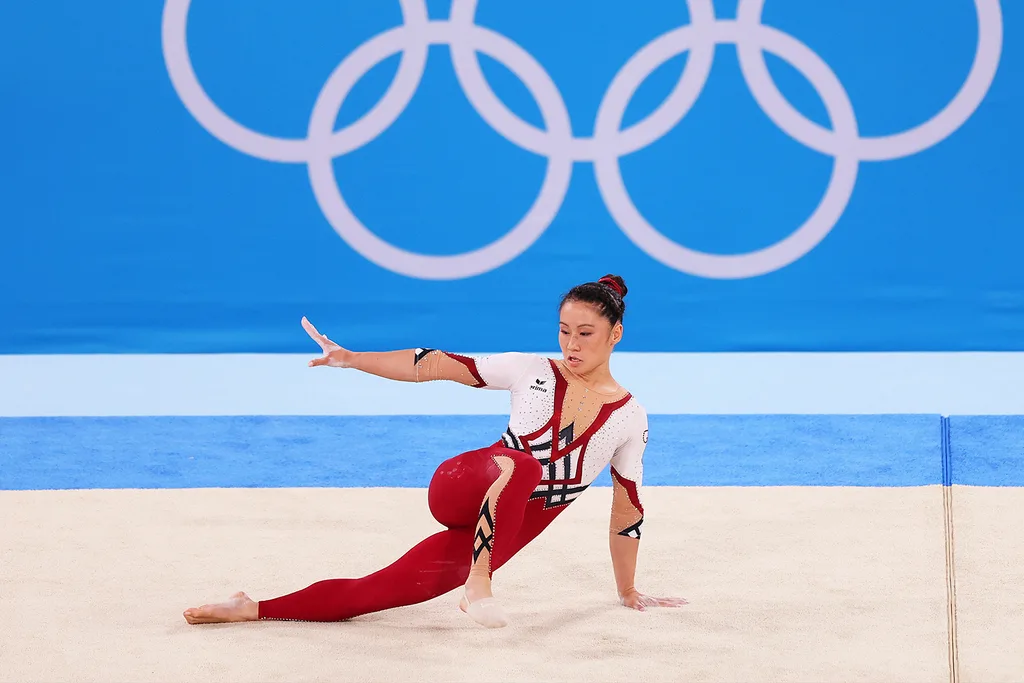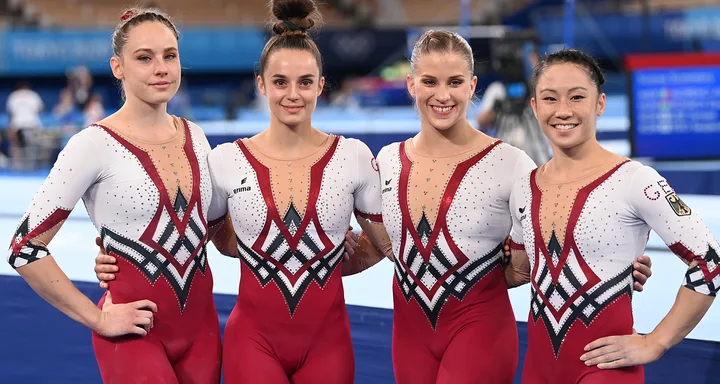When it comes to the Olympics, gymnastics is one of the most riveting and impressive displays of human agility and capability. But when it comes to the sport’s dress code, it is still incredibly outdated, with athletes forced to compete in bikini-like leotards. And now, Germany’s gymnastic team have chosen the 2021 Tokyo Olympics to take a stand against the archaic rule.
Taking to the gymnastics arena in full-length unitards, the women chose to prove how the sexualisation of their bodies in the sport still runs rampant, putting an emphasis on their choice for comfort. Compiling the four-person female team is Sarah Voss, three-time Olympians Elisabeth Seitz and Kim Bui, and two-time Olympian Pauline Schäfer.
During their preliminary round of competition, taking place on July 25, the group opted for long-legged and full sleeved uniforms to make their point.
“We wanted to show that every woman, everybody, should decide what to wear,” Seitz said, via Reuters. She continued, “That doesn’t mean we don’t want to wear the normal leotard anymore”.

Traditionally, the women’s teams wear bikini-cut leotards, but the German team’s choice to wear a full-bodied suit that’s typically worn by the men’s teams was about “what feels comfortable,” Seitz told CNN.
“We wanted to show that every woman, everybody, should decide what to wear.” As for future events at the 2021 Olympics or otherwise, the team will choose which style to wear “day by day, based on how we feel and what we want.”
The International Gymnastics Federation (IFG) has previously stipulated that unitards are, in fact, permitted to be worn, however, the rules state that gymnasts “must wear a correct sportive non-transparent leotard or unitard (one piece leotard with full length legs-hip to ankle), which must be of elegant design,” adding that “she may wear complete leg coverings of the same colour as that of the leotard; under or on top of the leotard.”
Back during the 2021 European Gymnastics Championships in April 2021, Seitz explained on her Instagram that she and her teammates wore “a new type of suit” as a symbol that some athletes “may feel uncomfortable or even sexualised in normal suits,” referring to the leotards that the sport has become known for.
However, this isn’t the first issue with uniform-related sexualisation at the Olympic Games. Earlier this week, Norway’s women’s beach handball team were issued fines for opting to wear shorts rather than bikini bottoms—a fine which musician Pink has declared she’d pay for the team, after she was disgusted by the ancient rule dictating women’s bodies.
Here’s hoping those archaic and sexist rules go out the window by the next games.










